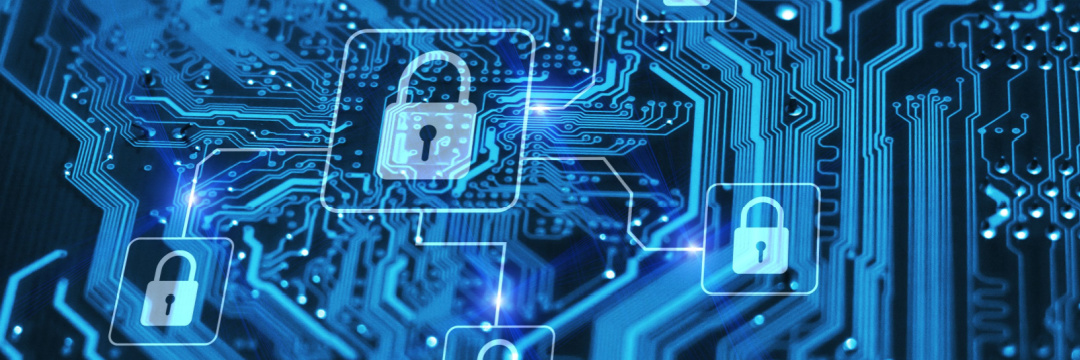The Biggest Cybersecurity Trends to Watch in 2023
By ERMProtect Staff
Keeping company data and systems safe has grown to become the #1 priority for most C-suite executives and CIOs globally. Advances in technology mean they are in a constant battle against hackers to come out on top. But, for most organizations, staying safe from external threats comes down to mundane considerations such as good security protocols.
Plugging all existing gaps, and ensuring your organization stays on top of security best practices, is the first step. What comes next, but is equally important, is staying abreast of cybersecurity advances and trends.
As we begin a new year, here’s a look at some of the top security trends that are emerging now and could pick up pace in 2023.
Increased Investment in Cloud Security
As more businesses transition to cloud infrastructure and run their operations on external servers and data centers, the need for robust cloud security is increasing. While cloud infrastructure as a service makes it much easier and economical for businesses to take advantage of cutting-edge technology without building and housing their own technology, it also creates many security vulnerabilities. Going into 2023, organizations that prioritize security must pay close attention to plugging vulnerabilities in the cloud services they use and invest more in cloud security.
Gartner estimates an 11.3% increase in worldwide investment in information security and risk management, driven by a shift to cloud services.
Advances in Quantum Computing and Decryption Pose a Threat
Businesses need to be more careful even with encrypted data because - while current systems will take thousands of years to break encryption - advances in quantum computing could mean that any data using current encryption techniques could be accessed easily.
This is a considerably serious future threat to organizations and individuals, one that technologists are trying to counter. Many companies are now offering stronger encryption algorithms which will prove harder for the quantum computers of the future to break. IBM and Thales have already started offering what’s called “post quantum cryptography” products - with stronger encryption algorithms believed to be immune to quantum computing.
The onus is now on organizations to gradually migrate to post quantum-safe encryption, and 2023 will be an important year in this transition.
Increased Use of AI-Based Threat Detection Security Software
Programs that use machine learning (ML) can spot patterns invisible to the human eye and make extremely accurate predictions based on large historical datasets. This makes ML-based cybersecurity programs incredibly effective in predicting, identifying, and dealing with threats proactively.
Going into 2023, organizations are expected to invest more time and money on AI- and ML-based security software. The global market for AI in cybersecurity is expected to grow nearly ten-fold, from $14.9 billion in 2021 to $139 billion in 2030.
Organizations that have been slow to adopt AI in cybersecurity should consider trying out predictive AI programs to automate threat monitoring. AI-based threat monitoring programs can go through large amounts of unstructured data quickly, identifying threats in real-time.
State-Sponsored Cyber Warfare
With tension growing between nations such as the U.S., China, and Iran, the threat of businesses and government organizations being hacked by nation-state actors grows more ominous every day. The war between Ukraine and Russia has already included a major digital component, with both countries having been frequent victims of breaches and hacks. This trend will continue in 2023.
Increasingly, governments are being targeted by ransomware hackers as much as businesses, as recently happened with the Costa Rica government. These attacks can bring governments and entire nations to their knees very quickly, so protecting against state-sponsored cyber warfare or attacks by private hackers will be a huge priority for nations in the year to come.
Employee Slip Ups Continue to Be a Major Security Concern
Employees have long been the weakest links in the security chain, and this threat continues into 2023, as remote and hybrid work become a permanent part of most organizations. Cyberattacks attributed to remote work went up by 238% since the start of the pandemic, according to a March 2022 report by Alliance Virtual Offices.
Remote work can expand the potential attack surface, owing to employees using personal devices or unsanctioned software such as grammar or spell checkers, code analyzers, or search tools, to get their work done. But following basic security best practices can significantly bring down the risk associated with remote work.
Some steps organizations can take to reduce the risk associated with remote work include:
- Using VPNs (virtual private networks) to access internal systems
- Requiring the use of only company devices with strong passwords, encryption, and updated antivirus software
- Having an iron-clad threat detection and incident response strategy in place.
Higher Threat to Supply Chain Security
Supply chain attacks are a growing cybersecurity concern. When a hacker targets a supply chain and disrupts the supply of a good or a service, they effectively compromise the operations of multiple businesses that are customers of the targeted organization. This was illustrated last year by a supply chain attack on IT management software provider Kaseya that impacted thousands of customers globally.
Preventing supply chain attacks can be challenging, because the vulnerabilities lie not just with a single organization, but also with its suppliers and vendors. Consider hiring a cybersecurity company to conduct thorough periodic risk assessments to cut down on supply chain disruption.
Upgrading Your 2023 Security Strategy with ERMProtect
ERMProtect can help your organization upgrade its cybersecurity readiness and strategy, perform deep-dive assessments of your systems, identify gaps, and help implement solutions. We leverage 25 years of experience in cybersecurity to secure your data, protect your business, and manage costs and risk. We also offer an affordable 75+ module library of Security Awareness Training to teach employees how to work safely online. For more information, call 305-447-6750 or email us at [email protected].

Get a curated briefing of the week's biggest cyber news every Friday.

Turn your employees into a human firewall with our innovative Security Awareness Training.
Our e-learning modules take the boring out of security training.
Intelligence and Insights

Aligning Your Incident Response Plan with NIST SP 800-61 Rev. 3

CEO Checklist: How To Know If Your Organization Is Cyber Secure


